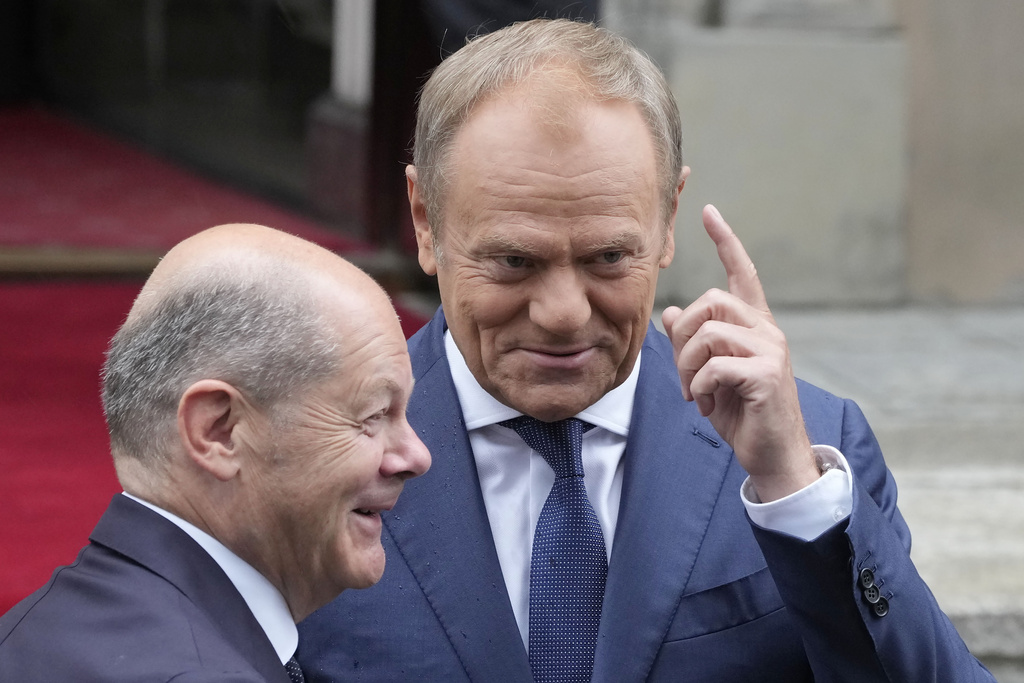The real reasons behind Germany’s stance on European defense, characterized by an apparent reluctance to provoke Russia, have been under intense scrutiny.
This approach contrasts starkly with Poland’s openly critical posture towards the United States, articulated by Prime Minister Donald Tusk and Foreign Minister Radosław Sikorski in widely noticed tweets.
After a U.S. presidential debate, Tusk pointed out that Democrats have a “real problem,” while Sikorski likened the current state of the U.S. to the Roman Empire on the verge of collapse. These remarks resonate deeply, reflecting a complex web of geopolitical tensions and allegiances.
The foundation of Tusk’s coalition government’s foreign policy was supposed to be securing the nation through European defense. Yet, German Chancellor Olaf Scholz opposed the funding of EU defense initiatives through the EU budget at the last European Council meeting, supported by President Emmanuel Macron and the soon-to-be NATO Secretary General Mark Rutte.
Scholz’s rationale was based on not wanting the EU to incur debt, as security matters, according to EU treaties, are primarily the responsibility of member states. However, critics argue that Germany’s real concern is irritating Russia, a less imminent threat for Germany compared to Poland.
During intergovernmental consultations in Warsaw, Scholz expressed a willingness to develop military cooperation with Poland, aiming to lead protection efforts on the eastern flank. However, this cooperation is intended to be bilateral and complement each nation’s military capabilities, which some fear could limit Polish military autonomy.
The presence of U.S. troops in Poland, based on an enhanced cooperation agreement with the Trump administration, is a significant obstacle to Germany’s ambitions to become a leader on the eastern flank. The current Polish government’s efforts to dissuade American cooperation are not unnoticed. Reports in the New York Times about plans to move U.S. Patriot batteries from Poland to Ukraine — later denied — highlight the precarious nature of this military relationship.
Poland has strong arguments for shaping a European component of the Western response to Russia’s policies. Yet, Tusk doesn’t miss an opportunity to lecture Americans, even commenting on a U.S. Supreme Court verdict involving Donald Trump, while praising President Andrzej Duda’s discussions with Chinese leader Xi Jinping.
The criticism from Polish leaders not only captures attention but also poses a question: Could this critique weaken military cooperation with the U.S., or is that the intended outcome? The presence of American troops in Poland is perhaps seen as an impediment to other strategic goals, setting the stage for a potential recalibration of alliances and defense strategies in Europe.






